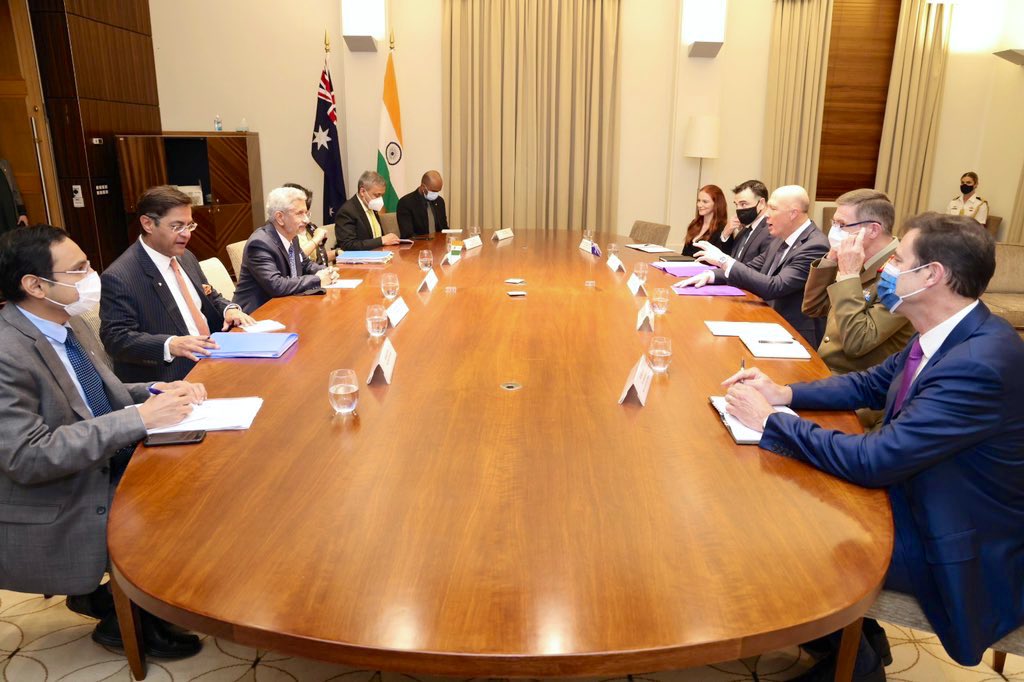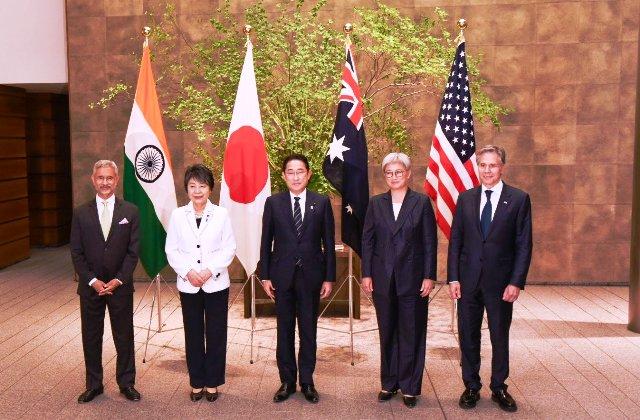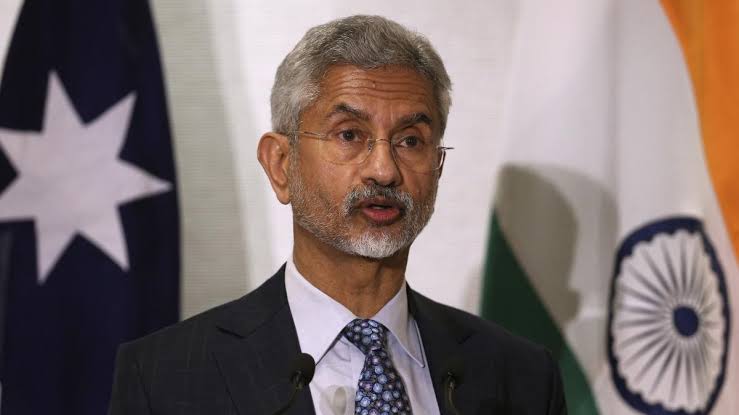Melbourne: The Quad foreign ministers on Friday vowed to ramp up cooperation to keep the Indo-Pacific region free from bullying,
The foreign ministers also opposed “coercive” economic policies, denounced the use of terrorist proxies for cross-border terrorism and asserted that Afghan territory should not be used to threaten or attack any country.
The Ukraine crisis was also discussed at the fourth meeting of the Quad foreign ministers in Melbourne with US Secretary of State Antony Blinken saying that Russia would face “massive consequences” if it renewed aggression towards the Eastern European nation and that Washington is following an approach of diplomacy and dialogue to resolve the issue.
At a joint media briefing with his counterparts from the US, Australia and Japan, External Affairs Minister S Jaishankar said an agenda seeking to further the Quad’s shared vision of a free, open and inclusive Indo-Pacific is being pursued to ensure peace, stability and economic prosperity in the region.
“As leading democracies, we pursue our shared vision of upholding a rules-based international order free from coercion, one based on respect for territorial integrity and sovereignty, the rule of law, transparency, freedom of navigation in the international seas, and peaceful resolution of disputes,” he said in his remarks at the meeting.
Japanese Foreign Minister Yoshimasa Hayashi said that the next Quad Leaders’ Summit will take place in Japan in the first half of 2022.
The statement said that the Quad partners champion a free, open, and inclusive rules-based order, rooted in international law, that protects the sovereignty and territorial integrity of regional countries.
“We oppose coercive economic policies and practices that run counter to this system and will work collectively to foster global economic resilience against such actions,” it said.
The Quad joint statement said that the member countries remained gravely concerned about the crisis in Myanmar and called for an “end to violence, the release of all those arbitrarily detained, including foreigners, and unhindered humanitarian access.”
“We are working to identify and address vaccine gaps and barriers exacerbated by gender, disability and social inequities, and ensure safe, effective, affordable and quality-assured vaccination coverage in hard-to-reach areas,” it said.







